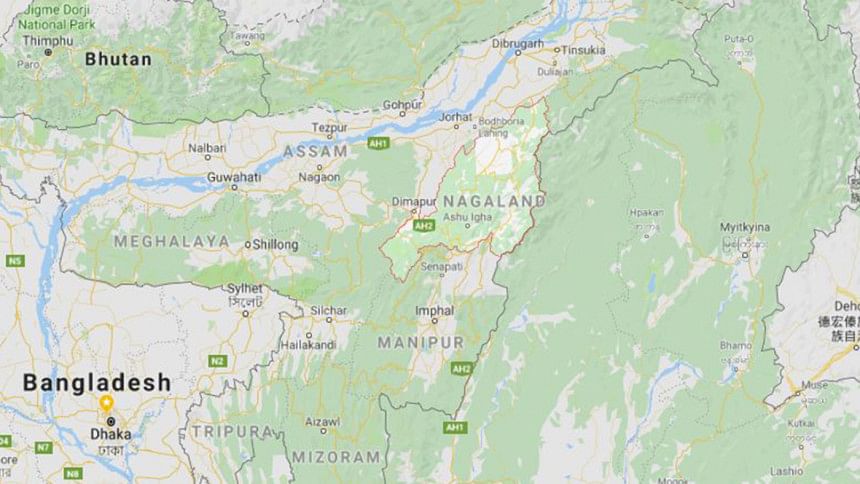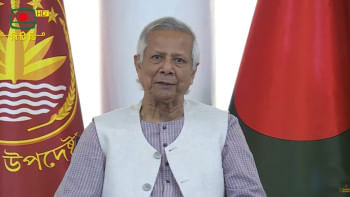Abolition of Article 370 sparks fears among north-east Indian states

The abolition of Article 370 of the Indian Constitution which gave special status to Jammu and Kashmir has sparked apprehensions in north eastern Indian states as the next Article 371 contains special provisions for them relating to sale and transfer of land and distinctive social and religious practices.
Most of the states which have been accorded special provisions under Article 371 are in the northeast and the special status aims to preserve their culture, reports our New Delhi correspondent.
The Indian government had on Monday revoked Article 370 and proposed that Jammu and Kashmir be bifurcated into two federally-administered territories -- Jammu and Kashmir and Ladakh.
Article 371 (A) relates to Nagaland where political parties and tribal outfits said they were confident that the Indian government "will not dare" to make a move similar to that of Jammu and Kashmir as it would jeopardize the ongoing peace process and hurt the sentiment of Nagas, reports the correspondent.
Negotiations are currently on between the Indian government and Naga insurgent groups to resolve the decades-old Naga political problem, the correspondent adds.
Article 371A states that no act of parliament with respect to religious or social practices of the Nagas, their customary law and procedure, administration of civil and criminal justice involving decisions according to Naga customary law, ownership and transfer of land and its resources shall apply to the state unless the state legislature decides by a resolution.
"As an Opposition party, we are confident that the central government will not dare to take the Jammu and Kashmir path in Nagaland. If the sentiments of Naga people are hurt and the consequences would be severe," Achumbemo Kikon, spokesperson of opposition Naga People's Front (NPF), said.
"The situation in Nagaland is different from Jammu and Kashmir since Nagaland got statehood following an agreement," he said. Nagaland became the 16th state of the country on December 1, 1963.
Kikon, however, admitted that though Nagaland has some special provisions under Art 371A, it has never resolved the Naga political issue.
"We are apprehensive but with the talks for settlement of the Naga political issue still on, we hope the Centre will not make any such move (to abrogate Art 371A)," said ruling Nationalist Democratic Progress Party spokesperson Merentoshi R Jamir.
Mutsikhoyo Yhobu, a Naga leader associated with various tribal bodies and civil societies, said: "we are apprehensive that the present BJP-led government at the Centre does not want to continue with the special provisions granted to any community or state in the country. The present government is more focused on creation of Uniform Civil Code."
He maintained that it was high time for the Naga people and the state government to react strongly before it is too late.
"We have apprehensions. But so far there has been no sign that the central government would resort to such drastic measures against the Nagas," said an official of the Nagaland Tribes Council.
A framework agreement was signed on August 3, 2015, by the National Socialist Council of Nagaland and the Indian government after over 80 rounds of negotiations spanning 18 years.
The first breakthrough in talks between the Indian government and Naga insurgents was made in 1997 when the ceasefire agreement was sealed after decades of insurgency which started soon after India's Independence in 1947.
Naga Mothers Association adviser Rosemary Dzuvichu said repeal of Article 370 in Jammu and Kashmir was a "violation" of the democratic rights of the people of that state describing it as the "darkest hour of the democracy".
However, in June, Neikiesalie Nicky Kire, a legislator of Nationalist Democratic Progressive Party (NDPP) said Article 371(A) impedes the state's development.
Article 371(A) states that land and its resources in the state belong to the people and not the government.
Nicky Kire said that due to Article 371(A), landowners usually do not allow the government to carry out any development activities on their plot.
Article 371-G that deals with special provisions with respect to Mizoram has similar nature. It states that an act of parliament relating to religious and social practices of Mizo customary law and procedure, administration of civil or criminal justice involving decisions according to Mizo customary law, ownership and transfer of land and its resources will not apply to Mizoram unless the state legislative assembly decides to do so.
Article 371B deals with special provision with respect to the state of Assam.
The main objective of inserting Article 371B was to facilitate the creation of the sub-state 'Meghalaya'.
Article 371C deal with special provisions with respect to Manipur which became a state in 1972. Articles 371F, 371H talk about special provisions with respect to states of Sikkim and Arunachal Pradesh respectively.
In Mizoram, academicians and politicians fear that the BJP-led NDA government's next target after Article 370 in Jammu and Kashmir might be the special provisions that protect the interests of Mizoram's indigenous people.
Article 371 G went into force in 1986 following the signing of the historic Mizo peace accord between the Indian government and the now-defunct underground insurgent outfit Mizo National Front (MNF).
Lallianchhunga, Assistant Professor of Political Science in Mizoram University, alleged that the BJP-led National Democratic Alliance government had been violating the federal spirits of the Constitution and moving towards a "unitary government".
"The Centre, in the name of economic development and internal security, may soon target the northeastern states with special provisions and statutes," he said.
Riachho, a retired Indian Administrative Service (IAS) officer, said it seemed that the Article 371 G in Mizoram might also come under danger.

 For all latest news, follow The Daily Star's Google News channel.
For all latest news, follow The Daily Star's Google News channel. 








Comments